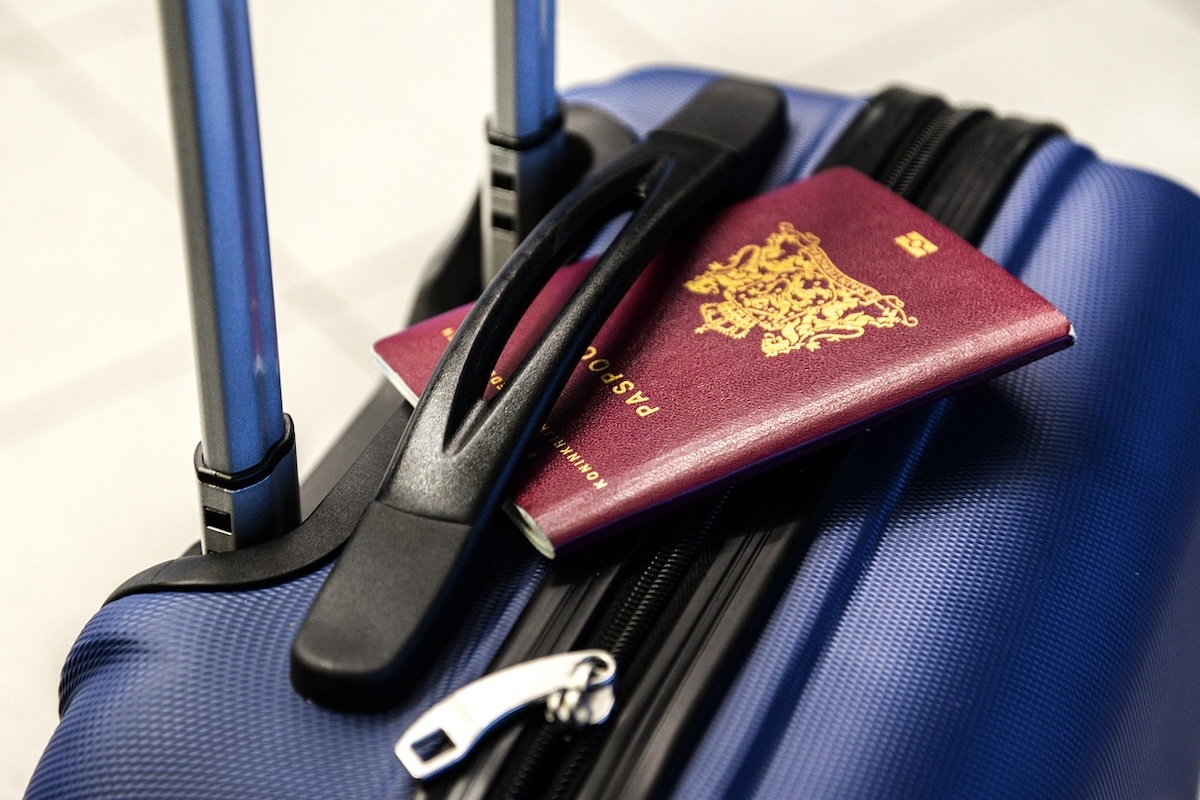
What Does ‘Gate Check’ Mean, and When Should You Use It for Your Luggage?
By: Sarah Stone
Skip to Section
Article Summary
Ever watched passengers hand over their carry-ons at the gate while you clutch yours like a life preserver? Gate checking might actually be the smartest move you’re not making.
This guide explains everything about gate checking – that weird middle ground between carrying on and checking bags at the counter. You’ll learn when airlines force you to do it, when you should volunteer for it, and how to make the process painless. The article covers the five key situations where gate checking makes sense, plus all the pro tips for doing it right, like remembering to grab your meds and laptop before handing over that bag.
- Gate checking happens at the departure gate when overhead bins fill up or your bag won’t fit on smaller aircraft.
- Parents can gate check strollers and car seats for free, using them through the airport until boarding.
- Always remove medications, valuables, chargers, and anything you’ll need during the flight before handing over your bag.
- Ask gate agents where to collect your bag – smaller planes return them at the jet bridge, larger ones send them to baggage claim.
- Some budget airlines charge for regular checked bags but allow free gate checking – a handy loophole for avoiding fees.
If you’ve ever boarded a full flight only to hear the dreaded announcement that overhead bin space is running out, you’ve probably seen passengers reluctantly handing over their carry-ons at the gate. That’s gate checking, and it can either be a hassle or a handy travel trick—depending on how you use it.
What Is Gate Checking?
Gate checking is when you check a bag at the departure gate rather than at the check-in counter. Instead of sending your luggage through the airline’s main baggage system, you bring it to the gate, and airline staff place it in the cargo hold before takeoff.
Your bag is returned to you after landing—either at the jet bridge (for smaller aircraft) or at baggage claim, depending on the airline and aircraft size.
Gate checking is different from checking a bag at the counter before security. It’s usually used for items that are too large for the cabin but too small to count as full-sized checked luggage.
When Should You Gate Check a Bag?
Gate checking isn’t always optional, but it’s a smart move in some situations. Here’s when you might want—or need—to do it:
1. When Your Carry-On Is Too Big for the Overhead Bin
Not all aircraft have the same overhead bin space. If you’re flying on a small regional jet or a budget airline with stricter size limits, your standard carry-on might not fit, even if it meets the airline’s official dimensions. In these cases, gate agents usually require you to gate check your bag.
2. When Overhead Space Is Full
On full flights, bins fill up fast. If you’re in a later boarding group, you might not find space for your carry-on. Rather than fighting for a spot or stuffing your bag under the seat, you can volunteer to gate check it and board with just your personal item if you’ve brought one in addition to your carry-on bag.
3. When You’re Traveling with a Stroller or Car Seat
Most airlines allow parents to gate check strollers, car seats, and other baby gear for free. This means you can use your stroller or car seat through the airport and hand it over just before boarding, where staff will store it in the cargo hold and return it at the gate upon landing.
4. When You Don’t Want to Lug a Bag Through the Airport
If you’d rather not drag a suitcase through crowded terminals but still want to avoid checked baggage fees, gate checking can be a convenient workaround—especially on airlines that offer it for free.
5. When You Have a Fragile or Oddly Shaped Item
Some items, like musical instruments or sports gear, can be tricky to store in overhead bins. Gate checking might be safer than cramming them into a tight space where they could be damaged.
How to Gate Check Properly
If you need to gate check your bag, here’s how to make the process smooth and stress-free.
1. Arrive at the Gate Early
If you suspect you’ll need to gate check, make sure to get to the gate as soon as possible. Airlines usually announce gate checking when bins start filling up, and being first in line means less hassle.
2. Remove Essentials Before Handing Over Your Bag
Unlike a carry-on, once your bag is gate checked, you won’t have access to it until after the flight. Before handing it over, take out anything you might need, such as:
- Medications
- Valuables (laptops, cameras, passports, jewelry)
- Headphones or chargers
- A change of clothes (if your final destination is cold or far from baggage claim)
3. Ask Where You Can Find Your Bag on Landing
Not all gate checked bags end up in the same place. On smaller aircraft, they’re often returned at the jet bridge, so you can grab your bag right after stepping off the plane. On larger planes, they go to baggage claim like standard checked luggage. If you’re not sure, ask the gate agent before boarding.
4. Keep Your Claim Tag Safe
When you gate check a bag, you’ll receive a luggage tag—just like regular checked baggage. Keep this with you in case there’s any mix-up when retrieving your bag after landing.
5. Consider It a Free Checked Bag (If Your Airline Allows It)
Some airlines—especially budget carriers—charge for standard checked baggage but allow free gate checked carry-ons. If your airline charges for checked bags but lets you gate check for free, this can be a handy trick to avoid fees.
Should You Gate Check on Purpose?
While gate checking is usually a last resort when overhead bins fill up, some travelers intentionally use it to avoid carrying heavy bags through the airport. Here’s when it might be a good idea:
- You don’t want to pay checked baggage fees, but you also don’t want to lug your (small) suitcase through security.
- You’re on a basic economy ticket, which doesn’t allow full-sized carry-ons, but the airline lets you gate check one for free.
- You’re traveling with a bulky carry-on that meets the airline’s size limit but might not fit in the overhead bins.
Just remember: gate checking is never guaranteed. If an airline doesn’t offer it or overhead space isn’t an issue, you might have to carry your bag on board. Whether you’re handing over your suitcase at the last minute or planning ahead to lighten your load, understanding gate checking ensures you’re never caught off guard at the gate.
Happy Travels!
About the Author
 As the editor-in-chief of Frayed Passport, my goal is to help you build a lifestyle that lets you travel the world whenever you want and however long you want, and not worry about where your next paycheck will come from. I've been to 20+ countries and five continents, lived for years as a full-time digital nomad, and have worked completely remotely since 2015. If you would like to share your story with our community, or partner with Frayed Passport, get in touch with me using the form on our About page.
As the editor-in-chief of Frayed Passport, my goal is to help you build a lifestyle that lets you travel the world whenever you want and however long you want, and not worry about where your next paycheck will come from. I've been to 20+ countries and five continents, lived for years as a full-time digital nomad, and have worked completely remotely since 2015. If you would like to share your story with our community, or partner with Frayed Passport, get in touch with me using the form on our About page.Featured image by Rudy and Peter Skitterians from Pixabay
Information published on this website and across our networks can change over time. Stories and recommendations reflect the subjective opinions of our writers. You should consult multiple sources to ensure you have the most current, safe, and correct details for your own research and plans.
Frayed Passport is a participant in the Amazon Associates Program, an affiliate advertising program designed to provide a means for sites to earn advertising fees by advertising and linking to Amazon.com. We also may share links to other affiliates and sponsors in articles across our website.




